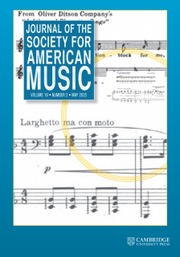No CrossRef data available.
Article contents
Curricular Reform and a Culture of Listening: Lessons from the Rosedale Freedom Project
Published online by Cambridge University Press: 22 December 2021
Extract
I was formally introduced to antiracist pedagogy in the spring of 2016, several months before I traveled for the first time to the Rosedale Freedom Project (RFP) in Rosedale, Mississippi, to teach a course on music and politics to high school students. Oft romanticized as the place where blues guitarist Robert Johnson sold his soul to the devil at the crossroads, Rosedale is a small town in the Delta region. The majority of its population is Black, and consistently, more than half of this population has lived below the poverty line. The RFP seeks to help send its students, the majority of whom are Black and profoundly underserved by the state of Mississippi, to and through college. In preparation for the summer (and at the request of the director of the RFP), I read a number of foundational texts on antiracism and critical pedagogy including Paulo Freire's Pedagogy of the Oppressed (1968), bell hooks's Teaching to Transgress: Education as the Practice of Freedom (1994), and Beverly Daniel Tatum's “Why Are All the Black Kids Sitting Together in the Cafeteria?”: And Other Conversations About Race (1997). As a white woman with no prior experience in Mississippi, I also read Nan Elizabeth Woodruff's history of the Delta region, American Congo: The African American Struggle in the Delta (2003) and Jesmyn Ward's novel Where the Line Bleeds (2008), among other texts, and reflected on how to design a course that would further the RFP's mission of “supporting the Mississippi Delta's young leaders in the development of critical consciousness and the practice of justice.”
- Type
- Essay
- Information
- Copyright
- Copyright © The Author(s), 2021. Published by Cambridge University Press on behalf of the Society for American Music




